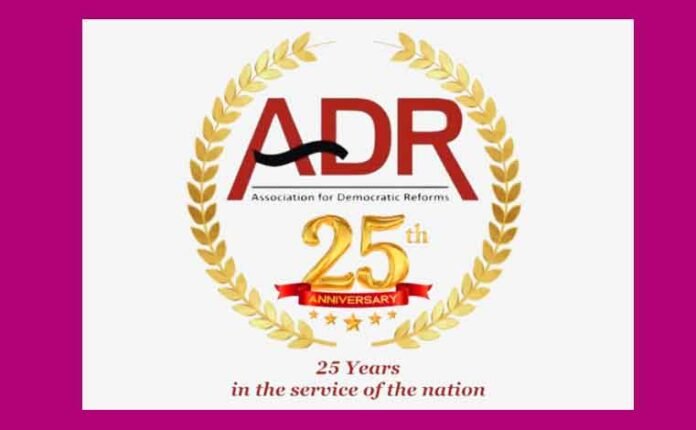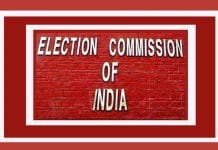Discover the details of the ADR report on irregularities in the counting of votes for 538 Lok Sabha seats, highlighting discrepancies between votes cast and counted, and the ensuing controversy over electoral accuracy.
Introduction
INVC NEWS
New Delhi : In a startling revelation, the Association for Democratic Reforms (ADR) has unveiled a significant case of irregularities in the counting of votes for the recent Lok Sabha elections. According to their detailed report, a staggering 5 lakh 54 thousand 598 votes counted fall short of the votes cast in 362 parliamentary constituencies, while 35 thousand 093 more votes were counted than actually cast in 176 constituencies. With these findings, the ADR’s press conference has stirred a storm of controversy and skepticism about the accuracy of the election results. This article delves deep into the ADR’s report, the questions it raises, and the responses from various stakeholders, including the Election Commission.
The ADR Report Unveiled
The ADR’s report has brought to light serious concerns regarding the vote counting process in the 2024 Lok Sabha elections. Let’s break down the key aspects of this report:
Key Findings from ADR’s Analysis
- Discrepancies in Vote Counting: According to the ADR, the number of votes counted was either significantly less or more than the votes cast in various constituencies. Specifically:
- 362 constituencies had fewer votes counted than cast.
- 176 constituencies showed more votes counted than cast.
- Total Discrepancy: The report indicates a total discrepancy of 5 lakh 89 thousand 691 votes across 538 Lok Sabha constituencies.
Press Conference Revelations
Jagdeep Chokar, the founder of ADR, addressed these irregularities during the press conference. Here are the crucial points raised:
- Delay in Data Release: Excessive delays in releasing the final voter turnout data have raised questions about the transparency of the process.
- Lack of Detailed Data: The absence of detailed data from various constituencies and polling stations has fueled public doubt about the accuracy of the election results.
- Final Data Accuracy: Chokar questioned whether the election results were declared based on the final and accurate data or if there were discrepancies that could have affected the results.
Examining the Election Commission’s Response
The Election Commission’s response to these allegations is eagerly awaited. Here’s a look at the key points that the Election Commission needs to address:
- Clarification on Vote Counting: The Election Commission has yet to provide a satisfactory explanation regarding the discrepancies in vote counts.
- EVM Data: There has been no clear explanation regarding differences between votes cast and votes recorded in EVMs.
- Delayed Data Release: The delay in releasing voter turnout data has been a point of contention and requires clarification.
- Website Data Issues: There have been concerns about figures being removed from the Election Commission’s website before the final results were declared.
Detailed Analysis of Irregularities
Constituencies Affected
The ADR report highlighted significant irregularities in 538 constituencies, excluding the following:
- Amreli
- Attingal
- Lakshadweep
- Dadra Nagar Haveli
- Daman and Diu
Surat, a notable exception, was uncontested, which further complicates the overall picture of irregularities.
Impact on Election Results
While the ADR report pointed out that these discrepancies have led to concerns, it did not specify how many seats might have been affected or how the results could have changed. The ambiguity leaves room for speculation and further investigation.
What Does This Mean for Voters?
Public Confidence in Elections
The report has raised serious concerns about the credibility of the electoral process. When voters perceive irregularities, it erodes trust in the democratic process. Here’s how this issue might impact public confidence:
- Increased Skepticism: Voters may become more skeptical about the integrity of election results.
- Calls for Reform: There could be increased calls for electoral reforms to ensure transparency and accuracy in the voting process.
Legal and Political Ramifications
- Potential Legal Challenges: The discrepancies may lead to legal challenges and demands for recounts or further investigations.
- Political Fallout: The report could have political implications, potentially affecting the legitimacy of elected representatives and future elections.
Frequently Asked Questions (FAQs)
What are the main findings of the ADR report?
The ADR report highlights significant discrepancies in the vote counts compared to the votes cast in 538 Lok Sabha constituencies. It points out both instances of fewer votes counted than cast and more votes counted than cast.
How has the Election Commission responded to these allegations?
The Election Commission has yet to provide a comprehensive response addressing the discrepancies, delays, and issues raised by the ADR report.
What is the impact of these irregularities on the election results?
The ADR report has not clarified how the discrepancies might have affected specific seats or the overall election results. This lack of detail leaves uncertainty about the full impact.
Why is there a delay in releasing voter turnout data?
The ADR has raised concerns about excessive delays in releasing final voter turnout data, which contributes to public doubt about the accuracy of election results.
The ADR’s report on irregularities in the counting of votes for the 2024 Lok Sabha elections has unveiled a troubling picture of discrepancies and delays. With 5 lakh 54 thousand 598 votes counted being less than votes cast in 362 constituencies, and an excess of 35 thousand 093 votes counted in 176 constituencies, the scale of the issue is significant. The Election Commission’s response will be crucial in addressing these concerns and restoring public trust in the electoral process.
As the nation awaits further clarification and action, the focus will undoubtedly remain on ensuring transparency and accuracy in the electoral process. The integrity of democratic institutions depends on the resolution of such issues, and it is imperative for all stakeholders to work towards restoring confidence in the electoral system.
















